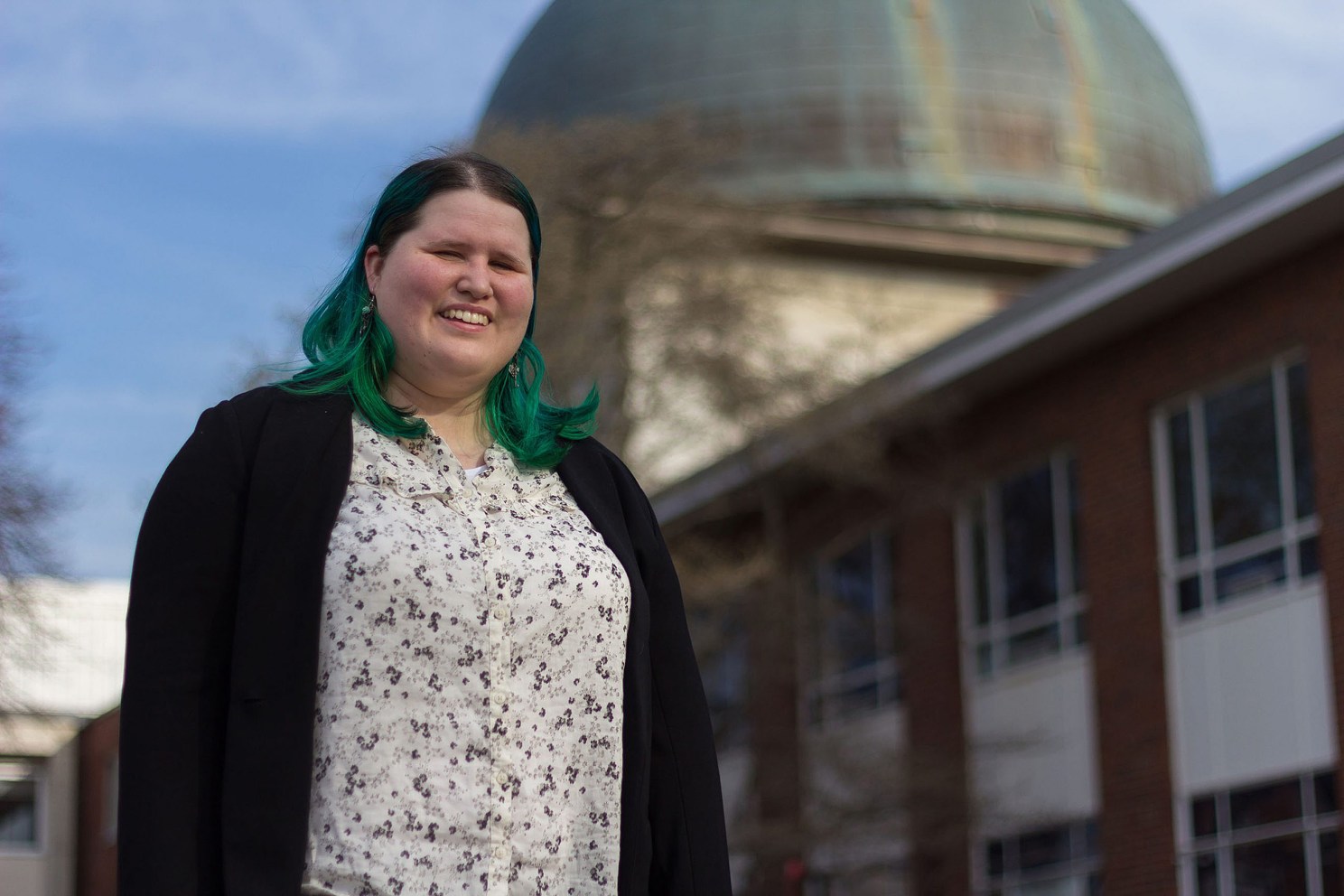Doctoral student awarded 51 Pegasi B Fellowship

Ellen Price has been awarded the 51 Pegasi b Fellowship from the Heising-Simons Foundation. Credit: Center for Astrophysics | Harvard & Smithsonian
Ellen Price, a doctoral student at the Center for Astrophysics | Harvard & Smithsonian, has been awarded the 51 Pegasi b Fellowship from the Heising-Simons Foundation. Price is one of only eight students in the nation to receive this prestigious award.
The fellowship will provide up to $375,000 in support for Price to conduct independent research in planetary astronomy over the next three years.
“It honestly still feels a bit unreal to be awarded this fellowship,” Price said. “But I’m eternally grateful to all the mentors who enabled me to get here, and I’m looking forward to making the most of this opportunity.”
Price will earn a Ph.D. in astrophysics from Harvard University in May 2021. During her time at the Center for Astrophysics (CfA), she studied protoplanetary disks — the birthplaces of planets — under the mentorship of Astronomy Professor Karin Oberg. She was also advised by former CfA postdoc Ilse Cleeves and Leslie Rogers, assistant professor of astronomy at the University of Chicago.
Established in 2017, the 51 Pegasi b Fellowship is named for the first exoplanet discovered orbiting a Sun-like star. The fellowship supports the growing field of planetary astronomy, which focuses on objects within and beyond our solar system. From improving the understanding of planetary system formation and evolution, to advancing new technologies for detecting other worlds, 51 Pegasi b Fellows make a unique contribution to the field of astronomy.
Price has accepted a postdoctoral position at the University of Chicago, which will serve as the host institution of her fellowship. There she will be mentored by planetary science Professor Fred Ciesla and attend an annual summit that assists fellows with developing professional networks, exchanging information and ideas, and fostering collaboration.
Price thrives most when tackling complex problems with big picture implications. As a theorist, she uses her mathematical intuition and computer programming talents to create simulations that explore the diverse outcomes of planetary formation.
“One of the overarching themes of my work is that simple is better than complex,” Price said. “My simulations provide results that are easy to analyze, and serve as a good benchmark for more complex approaches.”
Using highly efficient code, Price simulates how protoplanetary disk materials evolve over time and at multiple scales, from miniscule grains to giant planets. Her work reduces the time it takes to make realistic evolving disk models.
During her fellowship, Price will extend her code to model the chemical reactions that occur as the rocky cores of planets materialize within a protoplanetary disk. Simulating the ways dust and gas interact within these environments will advance the field by making an inventory of the chemical building blocks of planets.
Learn more about the 51 Pegasi b Fellowship at www.51pegasib.org.




